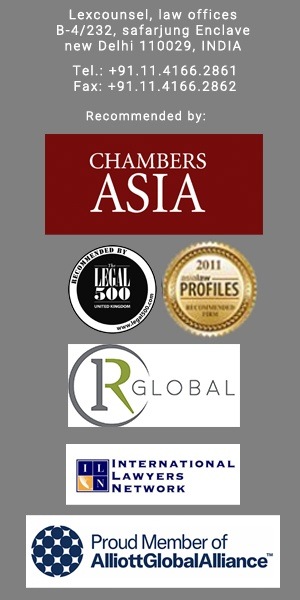
Empowering Healthcare: India’s Innovative Guidelines for Biosimilars and Vaccines by CDSCO
If you have questions or would like additional information on the material covered herein, please contact:
If you have questions or would like additional information on the material covered in this Newsletter, please contact the authors:
By:Alishan Naqvee,Partner
(anaqvee@lexcounsel.in),
Manasi Chatpalliwar, Associate
(mchatpalliwar@lexcounsel.in)

Empowering Healthcare: India’s Innovative Guidelines for Biosimilars and Vaccines by CDSCO
The Central Drugs Standard Control Organization (“CDSCO”) has released draft guidelines in an effort to
streamline the regulatory process for granting marketing permission to similar vaccines and other
biosimilars in India. The proposed revised Guidelines on Similar Biologics, 2016 (“Draft Guidelines”) seek
to supplement the earlier “Guidelines on Similar Biologics: Regulatory Requirements for Marketing
Authorization in India” (“2012 Guidelines”).
A. Biologics and Biosimilars
Biologics are medicinal products composed or derived from living entities such as tissues and cells. They
primarily include a wide range of products such as vaccines, blood and blood components, gene therapy,
tissues and recombinant therapeutic proteins.
A biologic similar to another biologic is called a biosimilar. In common parlance, it can be understood as
the generic version of a medicine, which can obtain registration upon proving to be as effective as the
original/innovation medicine.
B. Draft Guidelines vs. 2012 Guidelines
The Draft Guidelines attempt to simplify the process for marketing approval in India for a biologic (say a
vaccine) which is similar/comparable to another biologic/vaccine already approved for marketing in India,
or elsewhere in the world, as specified. Biosimilars (as well as other generic versions of medicines) are usually attempted to be manufactured and marketed after expiry of the patent of the original drug or in
case of healthcare emergencies.
Although the 2012 Guidelines were mostly aligned with global requirements, the Draft Guidelines seek to
introduce ICH referencing and stipulate that a reference biologic (based on which the biosimilar seeks
approval and entry into India) if not marketed/licensed in India, should be licensed in a country that has
adopted the Technical Requirements for Pharmaceuticals for Human Use prescribed by the
International Council for Harmonisation (“ICH”).
The ICH referencing in the Draft Guidelines may attract criticism. Reportedly, the CDSCO has itself in the
past blocked import of ICH standards in Indian regulations. The CDSCO and various other groups have
opposed ICH, arguing that ICH is a pharma industry driven body, prescribing such high standards which
do not necessarily add value beyond a certain point but definitely add to the cost of manufacturing of
medicines. India has a thriving generic drugs industry, and generic drugs are arguably required to provide
healthcare to the vast Indian population at an affordable price. Reportedly, the ICH also does not find much
approval even with organizations advocating for low/middle income countries.
The 2012 Guidelines did not prescribe ICH referencing and stipulated that a reference biologic could come
from any country with a well-established regulatory framework. The ICH referencing prescribed in the Draft
Guidelines may arguably impose an indirect barrier for approvals of biosimilars in India.
In addition to the above revision, the Draft Guidelines prescribe that Phase III trials for biosimilars shall
have at least 100 evaluable patients and Phase IV trials shall have at least 200 patients. The Draft
Guidelines also permit a smaller trial population size for trials of biosimilars for treating rare or severe
diseases or where therapeutic options are limited. The 2012 Guidelines did not specify the minimum
number of patients. It is generally expected that specifying a minimum number of patients will ensure
maintenance of uniform safety data.
The Draft Guidelines are open for suggestions and feedback till April 30, 2016
Feedback
Disclaimer: LexCounsel provides this e-update on a complimentary basis solely for informational purposes. It is not intended to constitute, and should not be taken as, legal advice, or a communication intended to solicit or establish any attorney-client relationship between LexCounsel and the reader(s). LexCounsel shall not have any obligations or liabilities towards any acts or omission of any reader(s) consequent to any information contained in this e-newsletter. The readers are advised to consult competent professionals in their own judgment before acting on the basis of any information provided hereby.
